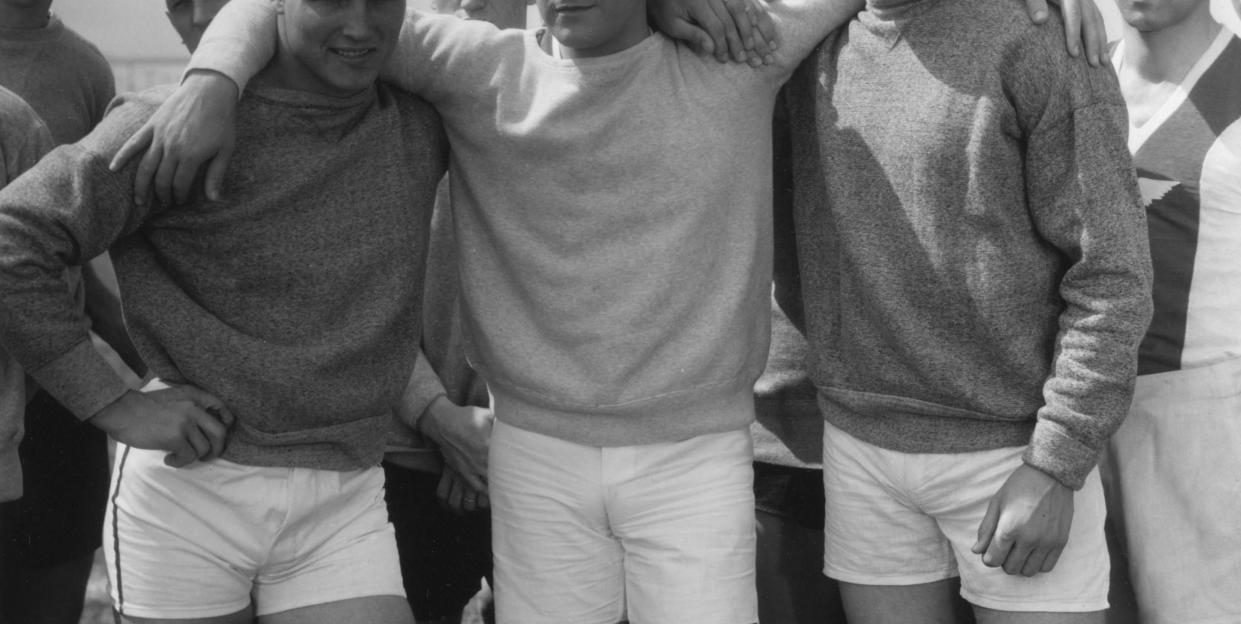This Is an Attack on Bro Culture

Last week, Senator Lindsey Graham called Dr. Christine Blasey Ford’s allegation that Brett Kavanaugh drunkenly attacked her at a party a “drive-by shooting.” Many right wing outlets have likened Ford’s allegation of an attack to an attack, with the Washington Examiner’s “sleazy attack” most closely mirroring the allegation itself. The National Review said the allegations are Democrats’ vengeful attempt to extract “a pound of flesh” from Kavanaugh before his confirmation, as they did with Clarence Thomas. Thomas, meanwhile, referred to his own sexual harassment allegations as a “lynching”-a phrase Bill Cosby and R. Kelly have since used to describe their sexual assault allegations.
Graham to me: “This has been a drive-by shooting when it comes to Kavanaugh . . . I’ll listen to the lady, but we’re going to bring this to a close.” https://t.co/BgciQ0eKak
- Seung Min Kim (@seungminkim) September 18, 2018
Do people who live with the fear of violence talk this way? (In 15 years of playing and watching sports I can’t remember hearing a woman say her team “got raped by” or “ran train on” her opponent.) One explanation for the gory headlines is that people don’t take allegations of sexual assault seriously. Republicans have also described Ford’s letter as a “hail mary” or a “dirty play,” as if Dianne Feinstein had exploited an arcane procedural rule-and ignoring the personal costs of coming forward for Ford. Maybe the violent metaphors are just a slight escalation on the worn-out sports ones.
But another explanation is that Republicans take the sexual assault allegations very seriously, in the sense that they stand between a man and a job is technically qualified for. Extreme language might come naturally if being denied a job is the worst thing you can imagine happening to you, or if you believe denying Kavanaugh this one job amounts to ruining his life. In which case, they’re right to be panicked.
McConnell is furious right now on Senate floor. "Even by the far left’s standards, this shameful, shameful smear campaign has hit a new low."
"Senate Democrats and their allies are trying to destroy a man’s personal and professional life on the basis of decades-old allegations."- Sahil Kapur (@sahilkapur) September 24, 2018
The stories we’re hearing about Kavanaugh suggest that a background that once all but promised access to the upper echelons of power (private school, Ivy League fraternity, Ivy League law school, prestigious internships) now gives us pause. Ford’s allegations-and, now, Deborah Ramirez’s-diverge from #MeToo and Anita Hill in that they’re not about men holding women back with sexual harassment. They’re about the way men accumulate power before they even enter the workplace: the conveyor belt of entitlement that tricks men into thinking they “deserve” the things that come to them, from drunk girls to pretty clerks to top jobs.
The coded douchiness in Kavanaugh’s high school yearbook and the open douchiness of his Yale frat brothers aren’t being aired as an ad hominem smear. They’re mentioned because the episode Ford described is familiar to many as a rite of privileged male bonding. That’s not to say attacks like Ford’s and Ramirez’s don’t happen everywhere, or that all private school kids are would-be rapists. Just that I’m not surprised that the emerging accusations against Kavanaugh all stem from elite school parties and played out in front of other men.
Growing up, I didn’t have a lot of exposure to guys like Kavanaugh and his friend Mark Judge, but my limited exposure overlaps perfectly with my only experiences being sexually humiliated for the benefit of other guys. What was traumatic about the summer my friends from my public school and I dated private school guys wasn’t the relentless, often physical, sexual pressure (though in retrospect, it should have been). It was how quickly my private school boyfriend flipped from trying to have sex with me to telling his friends what a prude I was. A funny story for other guys, I realized, was more valuable than a fourth date or even continued friendship with me. Looking back, I understand that those guys would go on to be his teammates, or help him finagle a transfer to the better private school, or their dads would give him internships, whereas I would go back to public school.
I suspect my female friends’ experiences that summer were similar because I heard humiliating gossip about them, too-I remember it better than my own experiences. As adults, many women I know can still rattle off which private schools in their town or fraternities on their campus were the “rapiest.” The shitty treatment of women was just in the ether.
I wrote to my congressman, @BillCassidy concerning Kavanaugh. I shared with him, my story about my rape and why this is particularly triggering and hard for me, and many other survivors, right now. He responded to my email with Kavanaugh's resume.
- Leah (@LGTrombatore) September 18, 2018
As the news cycle prompts us to exhume yet another aspect of our sexual histories, Kavanaugh’s sexual assault allegations stand in for a whole range of thoughtlessly harmful behavior that, instead of disqualifying men from power, can actually pave the path to it. I imagine that the way Kavanaugh allegedly treated women in drunken groups doesn’t square with how he treated women in sober, one-on-one relationships. I can even believe that the allegations might not square with Kavanaugh’s own memories. These stories might be filed away somewhere dark and blurry near youth, inexperience, and shame. Until recently, these stories were filed there for me, too. But when women are asked to look at Kavanaugh's resumé and consider his qualifications, it's impossible to disentangle him from the crowds he was a part of, the harm they caused and the benefits he extracted from them.
('You Might Also Like',)

